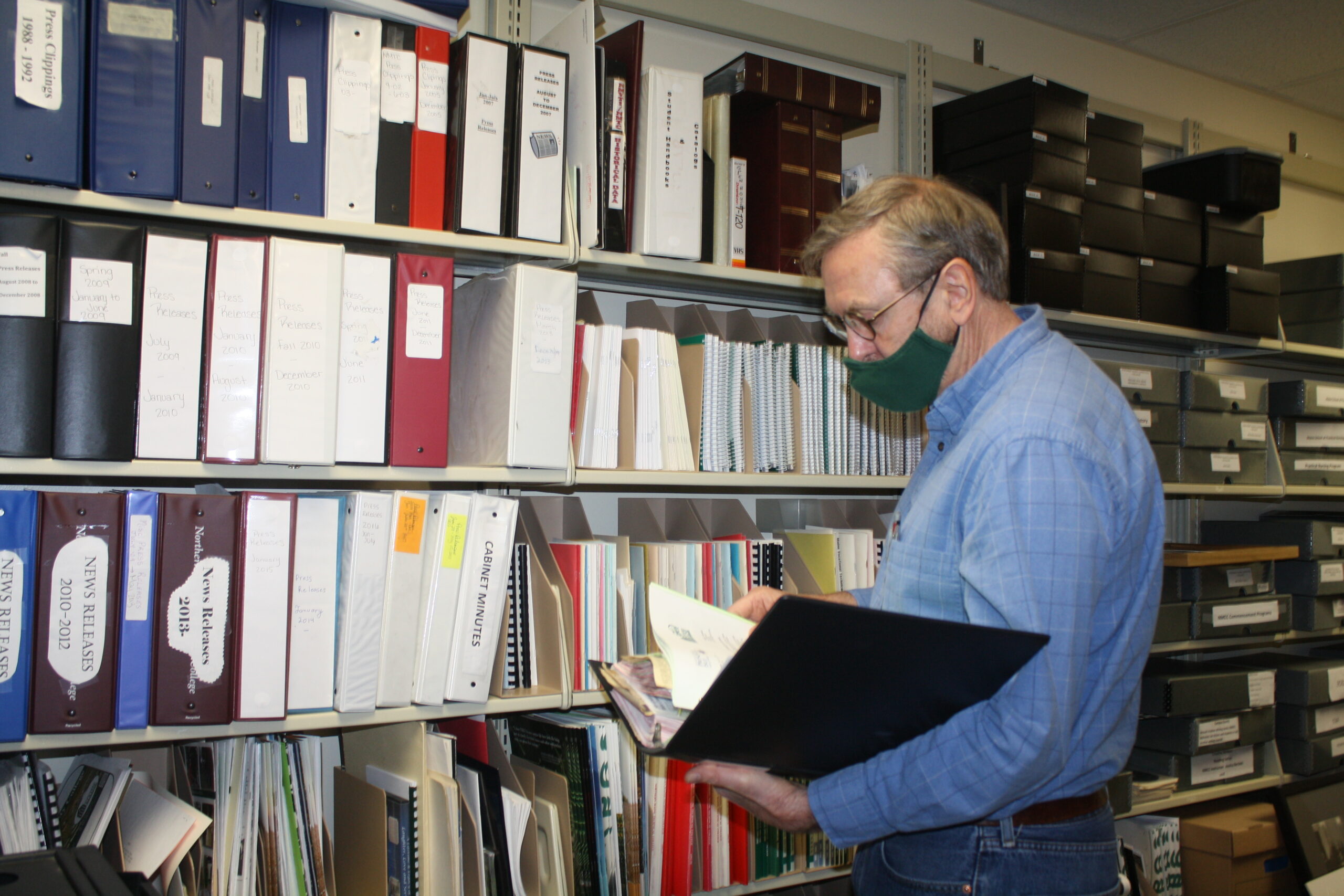
PRESQUE ISLE, Maine — In his more than 30 years of teaching history at Northern Maine Community College, David Raymond has seen firsthand the close connections that students form with faculty and the larger community as they work toward career goals.
But it was not until digging deeper into NMCC’s history that Raymond realized how much community engagement played a role in creating and sustaining the college that hundreds of students turn to each year.
“Students have always come first. That’s why the college has been so successful,” Raymond said. “I knew that NMCC was always community focused, but writing the history has made it clear that it’s been that way since [the college’s] inception.”
This month, NMCC has published a new book by Raymond, “A Brief History of Northern Maine Community College: 1961-2021,” which chronicles the college’s 60-year history.

PRESQUE ISLE, Maine — November 24, 2021 — The new book, “A Brief History of Northern Maine Community College: 1961-2021,” by history instructor David Raymond, tells how the college evolved from a technical institute to community college. (Courtesy of Northern Maine Community College)
Prior to the closure of the Presque Isle Air Base in 1961, a group of educational and community leaders had already seen the need for a school that could train people for manual trade jobs. But the official closure paved the way for the former Air Base buildings to become the campus of Northern Maine Vocational Institute.
The story of how that community group — known as the Northern Maine Community Education Commission — launched the school that became NMCC is one that Raymond sees as rooted in the college’s community-focused mission.
“People came together because they were concerned about the well-being of the city,” Raymond said. “The campus evolved as different needs were identified in the community.”
Two years after the Maine Legislature approved the formation of NMVI, the campus opened in 1963 with programs in practical nursing, carpentry, automotives and electrical construction, all of which are still part of the curriculum today.
Northern Maine Vocational Institute became only the second technical institute in Maine. After one year, the school changed its name to Northern Maine Vocational Technical Institute to reflect the state’s goal of opening more vocational schools.
During its earliest decades, NMVTI created programs that were seen as relevant to the community at the time, including radio and TV repair, computer science, plumbing and heating, masonry and accounting. By the 1980s, the demand for more business programs and four-year college prep programs resulted in some of the biggest changes for the institution.
“Until the late ‘80s, vocational technical institutes were under the Department of Education. They were somewhere in between high school and college,” Raymond said. “Because of the need for [business and liberal studies] programs, the DOE created the Maine State Vocational Technical Institute System, with its own board of trustees like a university.”
Those changes led to two more name changes: Northern Maine Technical College in 1990, the year that Raymond began teaching, and Northern Maine Community College in 2003. The new status as a college allowed NMCC to expand programs focused on workforce training and helping students transfer to four-year universities.
Despite the numerous changes, Raymond found one thing to be consistent throughout NMCC’s 60 years: faculty and students have always been involved with the community.
“They were always taking part in some type of project, like building an addition on an elderly housing unit, weatherizing homes for the winter or raising money to purchase Christmas gifts for families,” Raymond said. “The history of community service goes as far back as the institution itself.”
While exploring NMCC’s archives this past year, Raymond realized just how much history the larger community might not be aware of. By writing the book, he hoped to give the college a permanent record of its history and another way to educate community members about its heritage.
“I know from speaking with people that the college has a good reputation, but many people just know the basics of the history,” Raymond said. “I wanted to do for NMCC what other college and university histories have done: show how we’ve evolved.”
Copies of the book are available through NMCC’s Development Office and all proceeds will go toward the NMCC Foundation’s General Endowed Scholarship Fund, which awards scholarships to students based on financial need and academic performance.
Dottie Martin, dean of development and college relations, praised Raymond’s book for highlighting the roles that NMCC has played in shaping Aroostook’s workforce.
“It’s important to remember the foundations that others have built and the ones we continue to build,” Martin said.







